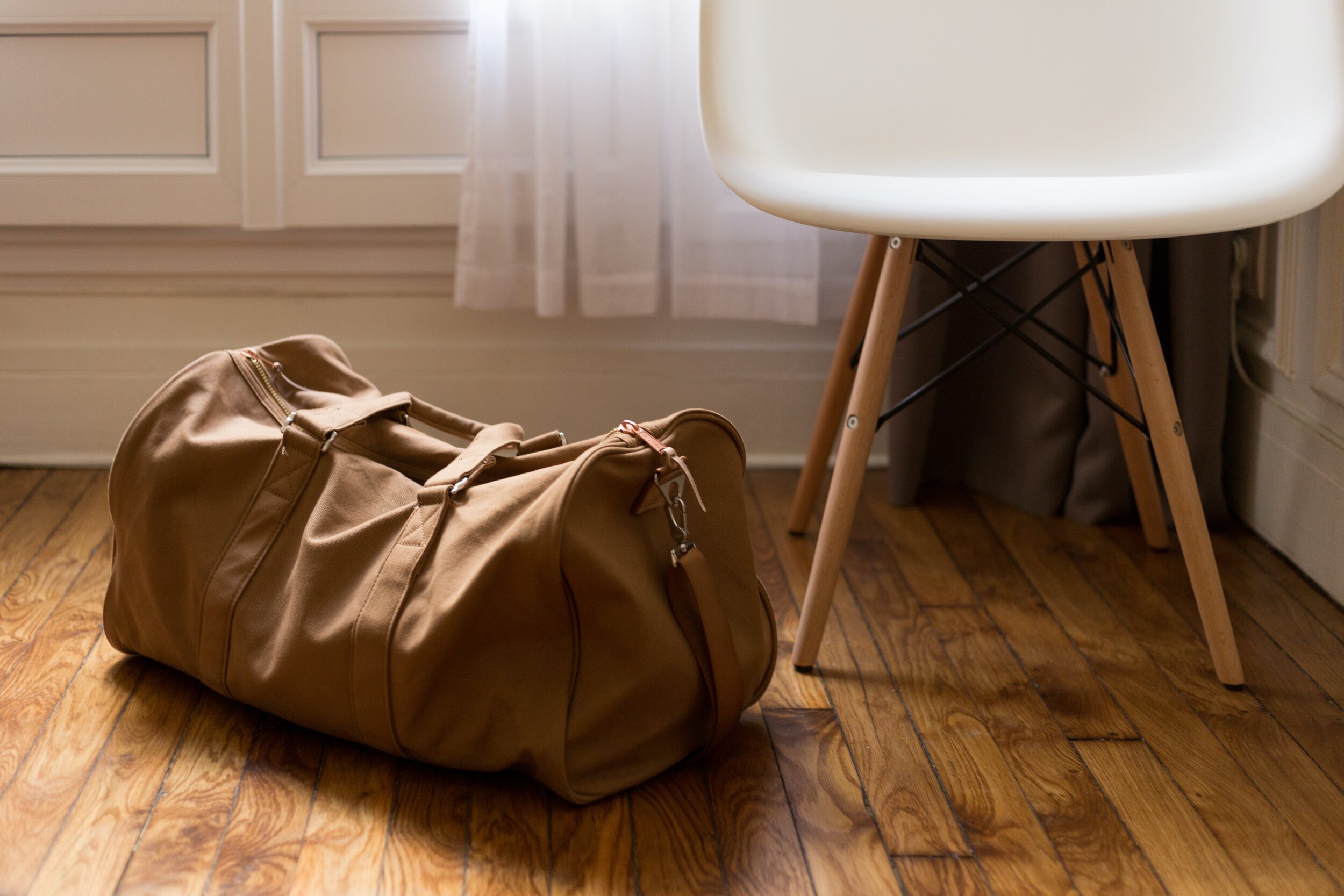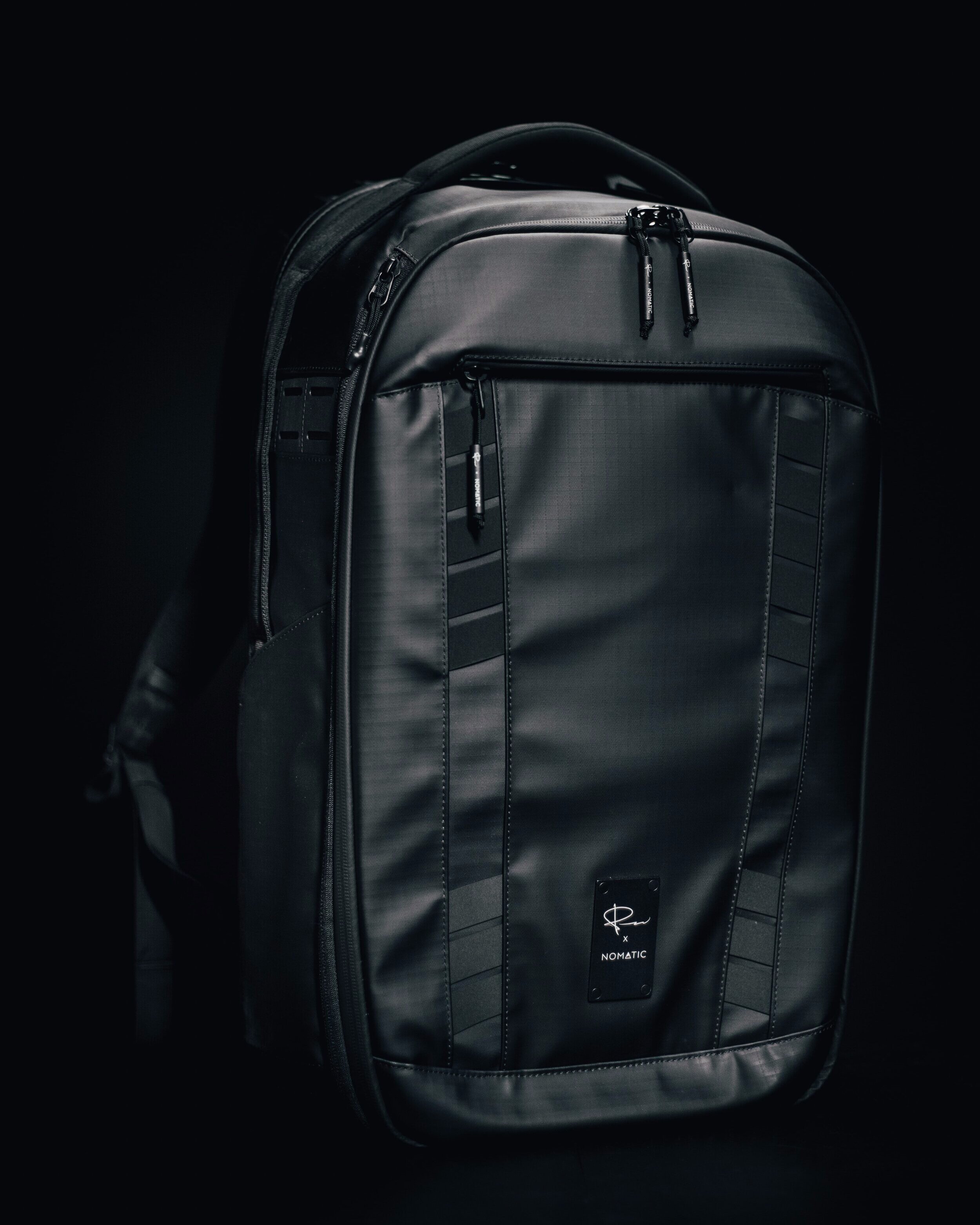Packing Your Hospital Bags
When Should You Start Packing Your Hospital Bags?
For many first time parents, the hospital bag dilemma is one that seems to cause a particular stress. The desire to be prepared is common as we want to make sure that we have all the necessary items in order to remain comfortable in a new, and sometimes seemingly harsh environment. Not to mention, imagine getting settled into your room and realizing that you have forgotten your phone charger or your favorite blanket! Often, the focus is on what will be needed for your little one(s). Of course we want to be prepared for their arrival. But in all actuality, the majority of what you pack will be for the birth experience itself, and for the comfort of the parents leading up to main event, and for the postpartum stay. People can sometimes be so focused on the birth part, that they forget they will be staying at the hospital for 2-4 days, sometimes (but hopefully not) longer.
Ideally, you will want to have your bags packed and ready to go by week 36 of pregnancy, in the event that you go into labor prematurely, or should you require a medically indicated induction. Inductions for first-timers can last 2-5 days commonly. You will be at the hospital’s with regard to meal times – and they may even deprive you of nourishment altogether, as their policies, while not evidence based, call for NPO during labor. This means Nil Per Os, which is “nothing by mouth” and is basically surgery prep. Yep, you heard that right. Everyone in labor is considered a surgery patient, and they are often not lenient about this. What they have for you is clear liquid such as water, and broth… tantalizing!
For twin or multiple pregnancies, planning to be “all packed” a couple weeks earlier will give you peace of mind.
Although you may want to pack more or less than what is contained in these lists, this will give you a general idea of what you might need in order to be prepared for comfortable hospital stay. Possibly an unexpected extended one…
A Hospital Bag For You (Labor & Postpartum)
You, the bearer of life, will require more items simply due to the nature of the labor, birth, and immediate postpartum experience. You may pack separate bags for the birth and postpartum experiences if you’d like, but do whatever makes you feel most comfortable and organized.
The essentials for labor, birth and postpartum:
ID & Insurance Card. You will present this information at the admissions desk before you head into the triage area.
Your Birth Preference Document. Bringing a couple copies is ideal. One to place in your chart, one for your labor nurse(s) and an extra in case there’s a shift change and it gets misplaced.
Portable Bluetooth Speaker, Headphones/Earbuds, & Playlist. Although some prefer silence, music is known to be a welcomed focus and relaxation technique during labor. Also for those who like to tune out and go within, putting earbuds in is one way to say “leave me be.” Certain Hypnobirthing programs may also require that you have something to listen to specific tracks throughout.
Childbirth Education Items. Things such as information documents, Hypnobirthing tracks or scripts, Flash Cards, etc.
Comfortable Clothes For Labor - Think light robe, birth gown/skirt, a bra with easy access for skin to skin. Wearing your own gown is an option. Wearing the hospital gown is not a requirement. Flip flops in case you make it to the shower for any portion of labor.
Comfortable Clothes For Postpartum. You might want to have a couple nursing bras/tanks, dark comfy PJs, joggers, tees, slipper socks or another comfy footwear in case your feet and ankles are swollen after the birth. Grippy socks are provided for during birth & postpartum. A comfy outfit for going home, including a jacket or sweater depending on the weather. Make sure you pack enough clothing for a possible extended stay.
Pillow & Blanket. Since hospital pillows can be thin and uncomfortable, bringing one of your own is an option. Also bringing familiar items from home may be a simple comfort that brings you peace through the birthing process.
Drinks. Bring your favorite reusable water bottle, individual coconut waters, Gatorades, Poweraids, Liquid IV, Nuun Tablets, and so on. Hydration is very important during labor. So if you should choose to self hydrate, these other beverages will be beneficial in addition to plain water. A splash of an electrolyte drink in your water is sufficient for a boost. Be aware of the sugar content of Gatorade and other sports drinks.
Snacks. Light snacks in case you need nourishment and fuel throughout the process. Several different types as you don’t know what you’ll be able to stomach at certain times. Most in the low risk category are ok to eat light healthy snacks – and in fact it is actually encouraged and an evidence based practice to keep up with the caloric demands of birth. One of the last things you want to do during your labor is go into ketosis. If this should happen, your body will think you may be “starving” and as a result, will prioritize blood and oxygen to your organs necessary to sustain life. Your life, that is. The uterus is NOT one of them. This means possibility of fetal distress and/or stalled labor. Who wants that? Eat if your body asks for nourishment. Always.
Phone Charger. Sometimes the hospital bed will be placed in a position that is far away from an electrical outlet, so bring a long cord if possible. Battery packs are also another option. You will want to make sure that you have enough battery life to snap a few pictures or to make your birth announcement calls and communicate with family throughout your stay.
Lip Balm, Hair Ties & Brush. Something to keep your lips from drying out. Breathing during surges over an extended period of time can cause chapping. Anything to keep your hair back such as a headband or scrunchy will be useful if you use those things.
Comfort Measures. This will include all of the items that you plan to use for relaxation, visualization, and coping. Perhaps you will use a T.E.N.S machine, massage oil, rice sock, rebozo, eye mask, washrags (for cold during pushing), a handheld fan, affirmation cards, fairy lights, essential oils, ect.
Bath Towels. Sometimes people prefer to bring this simple comfort from home, just in case the hospital towels are too small/rough. You can also bring a bathrobe. It’s totally up to your preference.
Adult Diapers. Although the hospital will provide you with hospital grade pads, and those designer mesh panties, you may feel more comfortable with the coverage something like depends would provide. Easy to pull off/on. You can bring your own breathable full coverage panties if you would like. If you would like to use any specific perineal sprays, peri-bottles, herbal sitz baths or other products, you can add them as well.
Toiletries. Your favorite soap, oil, face wash, shampoo, deodorant, toothbrush/paste, and whatever else you can think of that will make you feel prepared for the first shower after birth. Any skincare and hair products can also be included here.
Nipple Cream. If you are choosing to nurse, this might be a welcomed item in your postpartum repertoire.
A Bag for Baby (or Babies)
The essentials:
Car Seat(s). Most carseats come with a separate base that you can set up in advance. In most cases, you can run out to the car to grab the carseat(s) when you are ready to be discharged. Staff will want to discharge only when the appropriate carseats are present.
Pediatrician’s Contact Info. This will be one of the questions your nurse will ask immediately after birth, so that they can place this in your babies chart. Someone from your pediatrician’s office may be present in the hospital for rounds, so the first visit may actually happen then. If not, your little one(s) may be seen by one of the hospital pediatricians.
Going-Home Outfits. Maybe a couple onesies, shirts, or rompers, footies. Cotton pants. Socks. Any specific diapers and/or wipes that you prefer. If you’re looking for a good wipe, Waterwipes are great. Otherwise, the hospital will provide more than enough standard huggies or pampers, wipes, and hospital shirts. Keep in mind what season it will be, and that babies are often born either bigger or smaller than predicted. Make sure to bring an outfit and any props if you plan on doing fancy announcement photos!
Baby Comforts. Things such as swaddlers, muslin blankets, long sleeve body suits, hats.
Bottles/Containers/Syringes. If you plan to nurse, and things go well, you shouldn’t need much at all. But if there’s a point where you should have to pump or hand express for any reason, you are going to want at least a couple small containers such as bottles or syringes to store colostrum or milk depending on the length of your stay. Sometimes the hospital provides these. If you plan to bottle feed and/or formula feed, bring whatever supplies you need including the specific formula and bottles you plan to use. Otherwise, for formula feeding, the hospital supplies ready-to-feed newborn size bottles of formula. Pacifiers if wanted, though they usually also have those too.
Brest Friend or Boppy. These are useful to help prop babies and preserve your posture while nursing. Otherwise you will be playing a game called “where to stack the pillow.”
Unique Diaper Brands. If you plan to use something beyond the standard Pampers or Huggies, which contain absorbency chemicals, and may irritate your little’s sensitive skin… bring your own. Those planning to cloth diaper may still want to bring a few “sposies” for ease during their stay.
Bag For Your Partner or Support Person
Your partner and/or support person will want to pack a comfort bag as well:
A light blanket & pillow. The hospital will provide sheets, pillows and pillow cases but they can be thin and feel a bit on the rough side. Their blankets are fine but if you feel like a blanket and pillow from home would bring you comfort, by all means pack it. If you want, pack an eye-mask to block out the light if you are sensitive to light.
Headphones & charger. If there’s a specific camera you’ll be using to take pictures, bring that. Make sure there’s sufficient battery life, or bring the charger. Otherwise, you’ll be able to do most things on a smartphone.
Plenty of snacks! Bring your favorites. Some prefer trail mix, granola bars, energy/protein bars, candy, jerky, fruit. You can even pack a couple PB&Js. If you want, bring a cooler! And bring your favorite beverages and a reusable water bottle as well. The hospital usually provides unlimited orange, apple, and cranberry juice, as well as saltine and graham crackers.
Flip Flops & Trunks. In case you end up in the shower or a tub at anytime during labor.
Clothes. A couple comfortable outfits, undergarments, socks, slippers, PJs.
Toiletries. Don’t forget your faves, and things like extra contacts or glasses if applicable.
Bag For Dirty Clothes. You may want to pack a plastic bag to throw all of your dirty clothes in. That way when you get home, you can just dump them in the washer. The hospital usually provides those smaller clear plastic patient “soiled items” bags but if you want to throw a trash bag in there, in case you have an extended stay, that’s one option.
Did we miss anything? Let us know what you brought that you couldn’t live without. Or what you WISH you would have brought to make your life easier…



